We all want the very best for our cats– that’s why we spend so much time choosing the best food, sit still for hours when they fall asleep on our laps, and seek out articles like this. Even with the best intentions, we can sometimes cause accidental stress to our cats. Stress can not only make your cat feel crummy, but it can also cause her to act out with behavioral problems, such as peeing under the kitchen table rather than in her litter box.
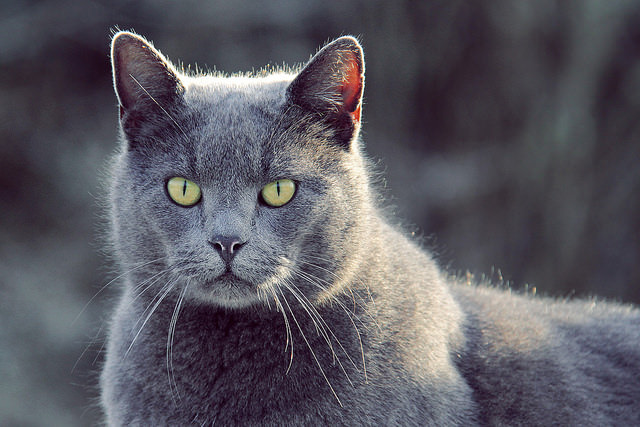
Image: Anders Lejczak via Flickr
#1 – Not respecting her boundaries
Your cat’s wildcat ancestors lived in a precarious balance between hunter and prey. It’s a mindset your domestic cat still maintains, even while she’s safe and loved in your home. If you pay attention, you’ll notice that she’s usually hyper-aware of her environment and ready to defend herself at a moment’s notice. Your cat needs to feel like she’s in control of her body and ability to bolt in order to feel safe, so you can cause her a significant amount of stress when you grab her head or continue to hold her after she begins to pull away.
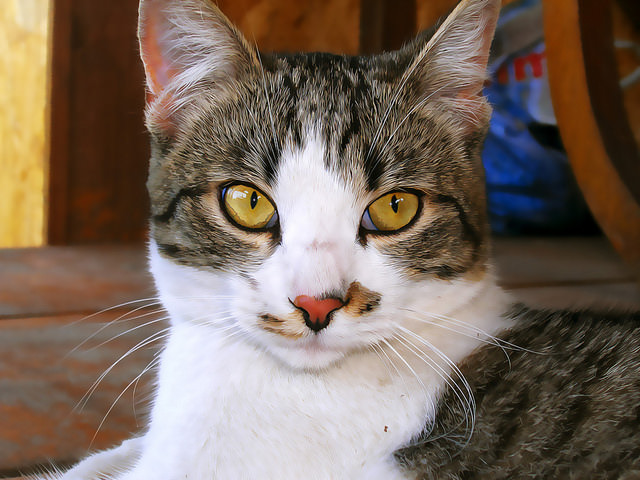
Image: Михаил Лазарев via Flickr
#2 – Leaving her alone a lot
It’s no secret that cats are fairly independent. Unfortunately, this often leads their humans to believe that they can leave their cats alone for long stretches of time— whether due to an exceptionally busy work schedule or a family vacation. Cats who are left alone a lot can feel lonely, under-stimulated, and can worry about whether or not anyone will refill her food dish when it empties. If you know you won’t be around as much as you’d like, find a cat sitter who will spend some time cuddling with, talking to, and playing with your cat in your absence.
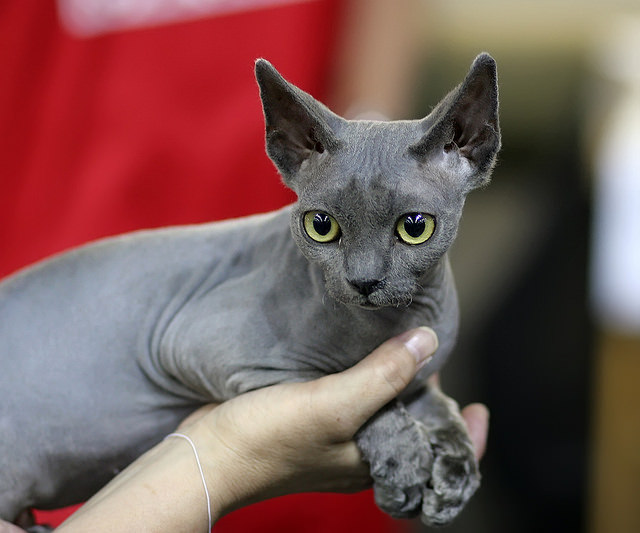
Image: Tomi Tapio K via Flickr
#3 – Neglecting the litter box
Cats are very particular about their litter boxes and any number of box-related factors can make your cat feel stressed out. Make sure you’re scooping the box every day to respect your cat’s very strong senses. While you’re at it, make sure the box is in an easily-accessible area of your home and that it’s never in complete darkness (even at night).
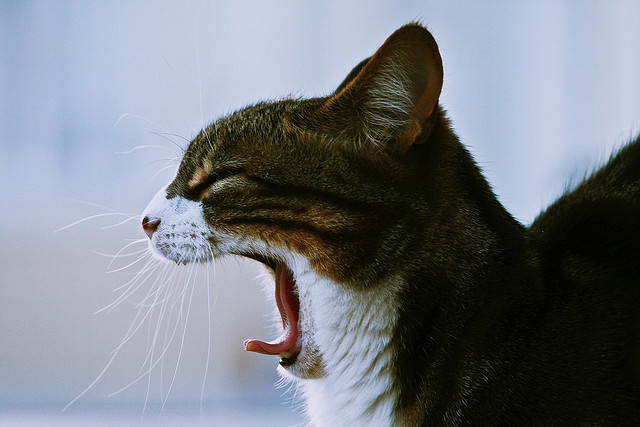
Image: johnc24 via Flickr
#4 – Sending mixed signals
Cats can become stressed out when you send mixed signals about appropriate or inappropriate behavior. A classic example of this is when we wiggle our fingers around during playtime then get upset and reprimand them when they chomp. You can ward off a lot of stress by understanding and respecting the instincts that cause cats to do what they do.
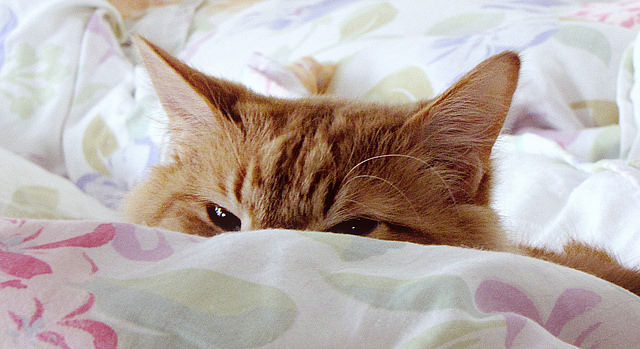
Image: Trish Hamme via Flickr
#5 – Strong smelling candles, perfume, etc.
Cats have incredibly fine-tuned senses of smell, which they use to understand and navigate their environments– including whether or not there are predators nearby. A home that’s filled with strong artificial smells (like candles, perfumes, or plug-ins) can disorient and stress out a cat who will suddenly be without one of her most useful senses.
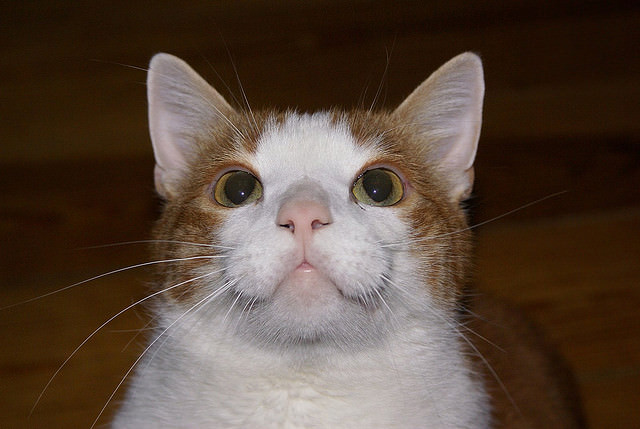
Image: Carsten Tolkmit via Flickr
#6 – Traveling with her more than necessary
Cats are territorial by nature and thrive in consistent and dependable environments. Some cats don’t mind traveling, but most would rather stay home in their predictable bubbles. If you want an animal who will be delighted to see the world with you, you may want to consider adopting a dog instead.
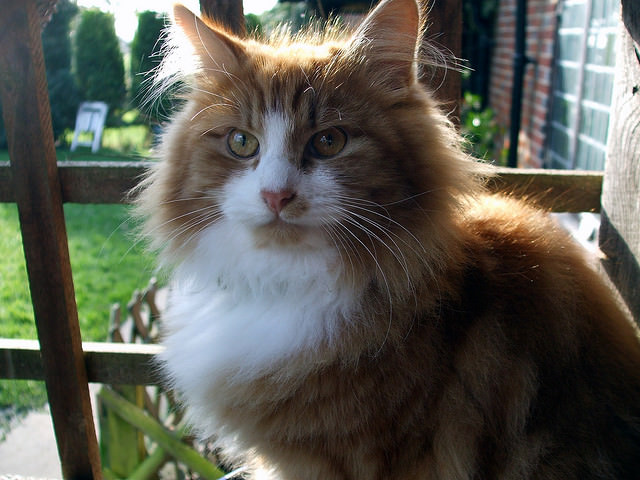
Image: allen watkin via Flickr
#7 – Loud, chaotic home
A loud and chaotic home can make a cat feel as if she always needs to be on the defensive, which can be very stressful. If your home must be loud for a bit (visiting houseguests, a birthday party, etc.) create a safe space for your cat in a room that won’t see any foot traffic. Make sure your cat has a quiet place to slip away for a nap, complete with her favorite bed, food, water, her litter box, a scratching post, and toys.
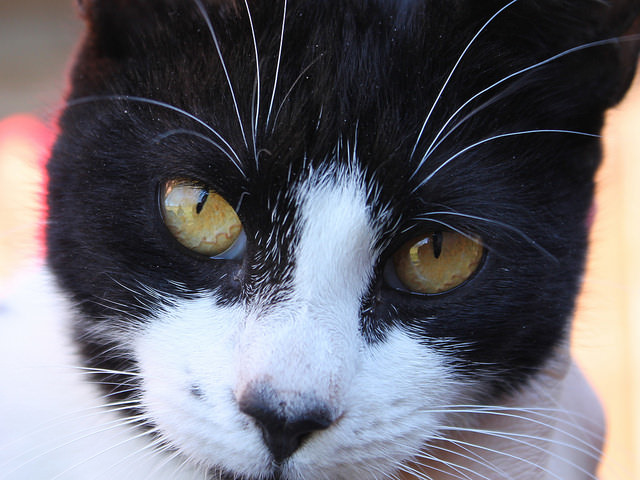
Image: Always Shooting via Flickr
#8 – Inconsistent meal times
If there’s two things I know about cats it’s that they love consistency and they love food. Indoor-only cats can feel very vulnerable when it comes to food, since they rarely have the opportunity to hunt for nourishment (minus the occasional mouse or fly). Setting a fairly consistent feeding schedule and sticking to it can help your cat feel confident that she won’t starve to death.
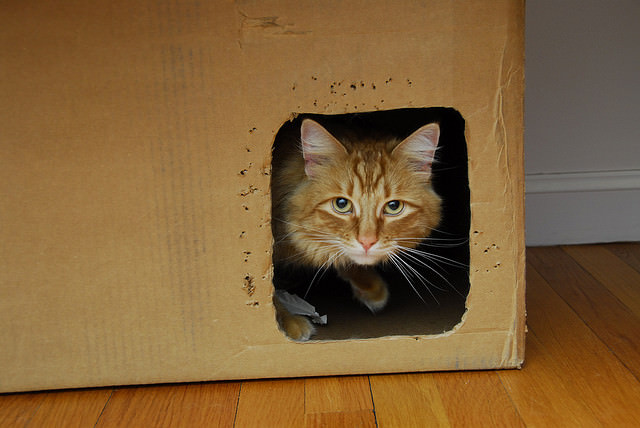
Image: Dwight Sipler via Flickr
#9 – Bringing home strange animals
One of the hardest parts about being a soft-hearted animal lover is not bringing home every animal you see that needs a cozy bed and bowl full of food. In an ideal world we’d all have the time, money, and emotional resources to care for ALL OF THE ANIMALS, right? Your cat doesn’t agree. Cats are very territorial and can feel major stress when they feel their turf is being treaded upon. If you intend to adopt a new animal into your family, make sure to properly make introductions. For non-permanent rescues, consider keeping a contact list of local shelters, rescues, TNR groups, and veterinary offices on hand so you’ll never (or rarely, at least) need to bring random animals home with you.
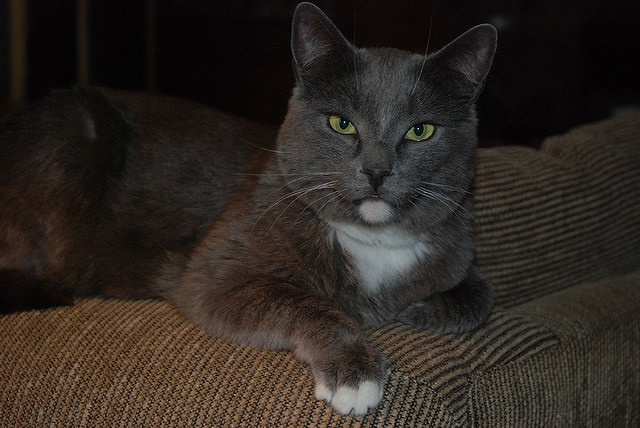
Image: Rob Lee via Flickr
#10 – Under-stimulating home environment
In the wild, cats have plenty of smells, sounds, and wiggling prey to keep them occupied and stimulated. Without some effort, your home may be lacking this fundamental part of keeping your cat mentally and physically healthy. Make sure your home has plenty of scratching posts, perches, and toys to keep your cat entertained.
